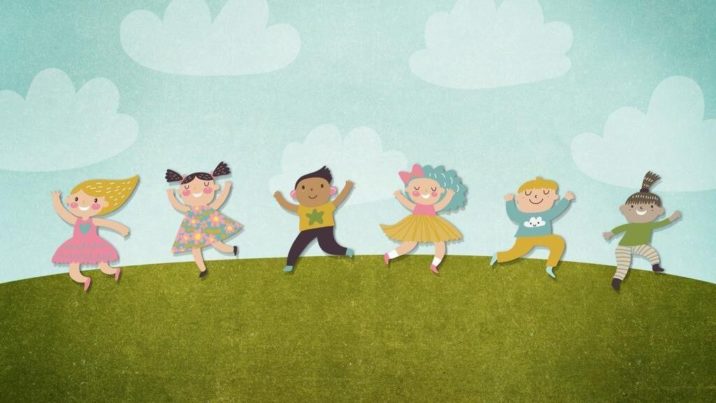From the sentimental images on greeting cards to the flawless young heroes of animated films, we often think of kids as pure and innocent beings who don’t suffer from the moral corruption of the adult world.
But Dr. Paul Tripp (pastor, international event speaker, and award-winning author) reveals how that’s not actually true.
What Kids Are Really Like
We can most certainly see and cherish a precious sense of innocence in our children. But, let’s be honest, kids are not innocent. Whether it’s sibling squabbles, willful defiance, selfishness, or physical violence, real-world children are not exactly pictures of moral purity.
Throughout the conference, Dr. Tripp reminds parents of their vital responsibility: parenting is an opportunity to let the Lord use them as a tool in shaping the soul of a child. Dr. Tripp points to Deuteronomy 6:4–9 in which parents are called to diligently teach their children God’s words. Children need to know God; they need to know the gospel.
In the first session of the Parenting conference, Dr. Tripp gives the hypothetical example of five-year-old Johnny, who pushes his sister Suzy so that she falls and hits her head against the wall. When Suzy starts crying, Johnny is confronted by a parent: “Johnny, why’d you do that?”
Johnny won’t respond: “Well, I’m a sinner. I’m the center of the world, I make life all about me, and when somebody gets in my way, I’m going to do violence to them. You should actually expect worse from me.”
Kids don’t yet understand their place in the world or the reality of sin and salvation. That, says Tripp, is why parents must unfold “the deep mysteries of the universe to their children—again and again and again and again.”
As Dr. Tripp knows firsthand, we often get discouraged and frustrated with our kids because we expect them to be thoughtful, self-controlled, and considerate.
But of course our kids are rebellious and deceitful. Of course they don’t love their siblings the way they should. That’s why God has us in their lives: to point them to him. “It’s a wonderful calling; it’s a beautiful thing,” Tripp asserts.
God loves our children, Dr. Tripp reminds us, and “he has put them in a family of faith and he will reveal the need of that child to you so you can be a tool of his rescue, and his help, and his transformation.”
The Job Description of a Parent
Dr. Tripp exhorts us not to get mad because our children need parenting; it’s what we’re called to. Don’t get mad when you’re confronted by your child’s brokenness, or when their sin interrupts your plans for the day. “Your children need rescue,” says Dr. Tripp, “and they don’t know they need rescue.”
Just like adults, kids’ behavioral issues stem from the fact that they think life is all about them. They need someone to share the truth of the gospel with them—and as a parent, that’s your job!
Shifting to this mindset changes how you parent. Instead of reducing parenting down to preset strategies to make parenting as comfortable as possible, or to a list of regulations, threats, and punishments, you realize that your children need something profoundly deeper and more expansive.
They need to know God.
Parenting isn’t about us as parents. Instead, Dr. Tripp contends, it’s about being one of God’s tools to form a human soul.
Learn More from Dr. Tripp
Parenting with Words of Grace: Building Relationships with Your Children One Conversation at a Time
From the sentimental images on greeting cards to the flawless young heroes of animated films, we often think of kids as pure and innocent beings who don’t suffer from the moral corruption of the adult world.
But Dr. Paul Tripp (pastor, international event speaker, and award-winning author) reveals how that’s not actually true.
What Kids Are Really Like
We can most certainly see and cherish a precious sense of innocence in our children. But, let’s be honest, kids are not innocent. Whether it’s sibling squabbles, willful defiance, selfishness, or physical violence, real-world children are not exactly pictures of moral purity.
Throughout the conference, Dr. Tripp reminds parents of their vital responsibility: parenting is an opportunity to let the Lord use them as a tool in shaping the soul of a child. Dr. Tripp points to Deuteronomy 6:4–9 in which parents are called to diligently teach their children God’s words. Children need to know God; they need to know the gospel.
In the first session of the Parenting conference, Dr. Tripp gives the hypothetical example of five-year-old Johnny, who pushes his sister Suzy so that she falls and hits her head against the wall. When Suzy starts crying, Johnny is confronted by a parent: “Johnny, why’d you do that?”
Johnny won’t respond: “Well, I’m a sinner. I’m the center of the world, I make life all about me, and when somebody gets in my way, I’m going to do violence to them. You should actually expect worse from me.”
Kids don’t yet understand their place in the world or the reality of sin and salvation. That, says Tripp, is why parents must unfold “the deep mysteries of the universe to their children—again and again and again and again.”
As Dr. Tripp knows firsthand, we often get discouraged and frustrated with our kids because we expect them to be thoughtful, self-controlled, and considerate.
But of course our kids are rebellious and deceitful. Of course they don’t love their siblings the way they should. That’s why God has us in their lives: to point them to him. “It’s a wonderful calling; it’s a beautiful thing,” Tripp asserts.
God loves our children, Dr. Tripp reminds us, and “he has put them in a family of faith and he will reveal the need of that child to you so you can be a tool of his rescue, and his help, and his transformation.”
The Job Description of a Parent
Dr. Tripp exhorts us not to get mad because our children need parenting; it’s what we’re called to. Don’t get mad when you’re confronted by your child’s brokenness, or when their sin interrupts your plans for the day. “Your children need rescue,” says Dr. Tripp, “and they don’t know they need rescue.”
Just like adults, kids’ behavioral issues stem from the fact that they think life is all about them. They need someone to share the truth of the gospel with them—and as a parent, that’s your job!
Shifting to this mindset changes how you parent. Instead of reducing parenting down to preset strategies to make parenting as comfortable as possible, or to a list of regulations, threats, and punishments, you realize that your children need something profoundly deeper and more expansive.
They need to know God.
Parenting isn’t about us as parents. Instead, Dr. Tripp contends, it’s about being one of God’s tools to form a human soul.
Learn More from Dr. Tripp
Parenting with Words of Grace: Building Relationships with Your Children One Conversation at a Time





